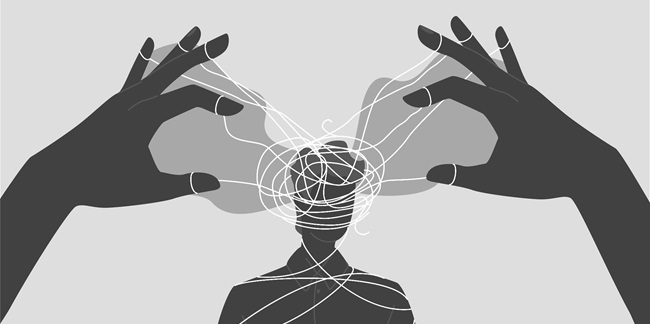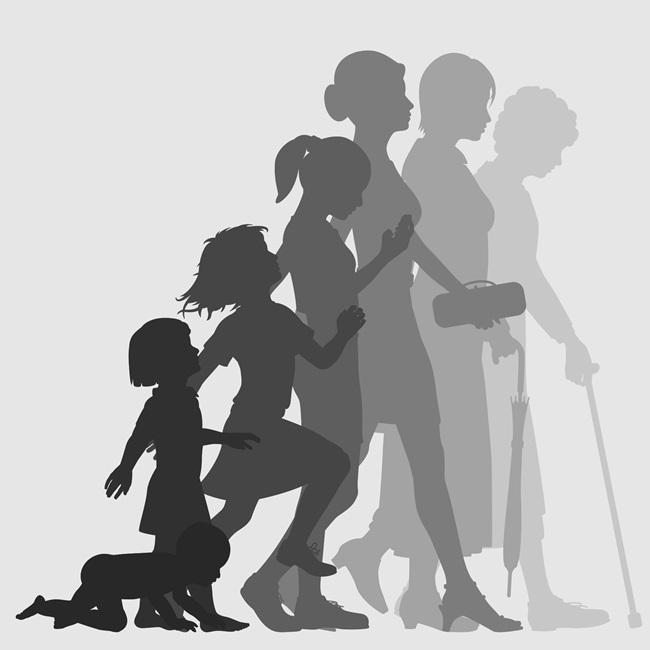Jan 04, 2026
Jan 04, 2026
The issue of the mental health of senior citizens has not got the attention it deserves. The world’s population is ageing fast. In 2020, there were 1 billion people in the world who were 60 years and older. The figure is expected to reach 1.4 billion in 2030; one in six people worldwide will be 60 years or older. It will be 2.1 billion by 2050. The number of those icky years and over will be 426 million by 2050. It is time that attention was paid to not only the physical health but also to the mental health of this age group.

While many have reasonably good health and contribute their wisdom, knowledge, and maturity to their families and communities, a substantial number also suffer from mental health conditions like depression and anxiety, if not worse, like Alzheimer’s disease or dementia. Why does this happen? Several factors contribute. For one, society itself marginalizes older people. At a particular stage, they are retired from work, or their careers are made to plateau in favor of younger people. Then, there is ageism with negative connotations, implying irrelevance or uselessness or impairment of capacity because of age. People do not even realize that they are saying hurtful things to an older person when they imply that the person is too old to learn something new, that he or she would not be able to fit into a younger age group of their sons and daughters and their friends, or that they cannot enjoy certain foods.
I remember sitting with my teacher one day at a function. She was in her 80s. She was enjoying a desert when someone passed by and said, “It is good to see you can still relish suites at your age.” She was very hurt, although the remark was probably not so intended.

Ageism is somehow built into society, and gradually, the person himself or herself internalizes it and becomes ‘old.’ It is sad, but sometimes, the disparagement is not confined to remarks alone. Abuse of older people by their children or caregivers is not as uncommon as one would imagine.
Then, there are physical disabilities, like reduced mobility or chronic pain. Some old people become very frail. There are mental health issues born out of social isolation and loneliness, the loss of purpose in life and the ensuing feeling that they are useless and a burden to family and society. Many of their friends pass away, and mortality stares them in the face. All these factors lead to mental health problems.
So, what is the solution? How can an older person cope? It is vital to remember that after all official and family responsibilities are over, one truly begins one’s golden age, an opportunity to live for oneself finally. One can pick up things that one had no time for earlier. Frankl, a nazi camp survivor in Man’s Search for Meaning, makes a distinction between purpose in life and meaning in life, although we tend to use them interchangeably. The purpose is an external goal or intention to accomplish something, like settling one’s children, whereas meaning in life refers to a sense of inner coherence that one gives to one’s existence. Frankl observed that life has meaning under all conditions, and we have the capacity to find that meaning in the most adverse circumstances. This is because no one can take away from us the freedom to choose one's attitude toward a particular situation.
And how does one find meaning in one’s life? One way is through creative activities, some form of work, or even volunteering. The second is through social communion. Loneliness makes one lose one’s sense of purpose and meaning in life. Never isolate yourself. The third way is to pick up a hobby that one had no time for, like music, painting, writing, pursuing the arts or even a sport. It is imperative to join meaning-based gatherings or groups like book clubs or take short-term classes to hone one’s skills in a particular hobby like baking or cooking. Another very important activity is memoir writing, a record of one’s life. It gives a sense of the self and leaves a record for future generations, which can be invaluable. And, whenever possible, if one is lucky enough to have grandchildren around or even children from the neighborhood, to participate in some intergenerational activities. It can be helping them with school homework, artwork or just organizing games and picnics. The important thing is to remain centered and happy and to radiate that happiness.
Images (c) istockphoto.com
07-Jan-2024
More by : Dr. Kavita Sharma

|
I highly appreciate the article ‘Mental Health and Ageism’ as it is most relevant to the present-day life conditions of old. This subject is discussed in many forums by one and all quite frequently. That is because of the incidents and reports which are published some real some exaggerated for publicity. I am a senior citizen and single also. I have many hobbies not cultivated after my quite demanding profession as a safety professional for industries but even during the service. The most unfortunate thing in our country is the ‘life’ of most are ‘centered’ only on wealth, property, and their children. Even if they are fulfilled the old parents are not satisfied. They want more. Most of the men or women don’t practice any hobbies except religion. It is also with a purpose. I remember one of my highly materialistic cousins asked me long back when I was drawing ‘What is the use of this?’ Even now I don’t have an answer for that ‘profound question’ except art gave me happiness. I know many persons who had neither interest in their jobs nor other ways to engage themselves except to earn money and accumulate assets. The longevity of life now with medication is yet another reason for this frustration. |